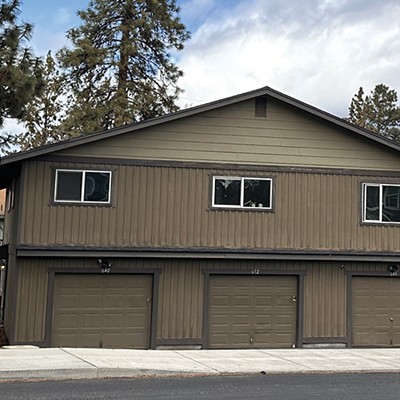The Central Oregon Builders Association (COBA) has a long history of contesting the city of Bend's fees. So it's no surprise that COBA took an early interest in the city's recent effort to update the street construction fee assessed to builders. What is surprising is the active role that the city has allowed the builders to take in shaping the proposed fee structure, known as a Transportation SDC. The fee which is tacked onto the permitting cost of a new home is intended offset the cost of building new streets and street related improvements, such as curb and sidewalks, that are required to service the town's growing population.
The idea that growth pays for growth, is one that is commonly accepted in Oregon. SDC's are codified in state statute and widely used across Oregon. By many accounts they are an effective tool of funding critical infrastructure in a state that has otherwise hamstrung municipalities when it comes public funding thanks to tax-limiting measures that have done much to constrain public revenues but done little to curb the costs of running a city or a county. In the past, Bend and other cities across Central Oregon have opted to charge less than the full amount entitled to them because of pressure from organizations like the Central Oregon Builders Association and its allies, including the local Realtor lobby. Those policies have resulted in a funding shortfall that put many cities behind the curve when it came to dealing with the rapid residential growth associated with the last building boom.
Cities and other taxing districts responded by increasing their collection rates. Now that the boom is over builders are back looking for a hand, or a handout, depending on how you see it. And they've come up with a novel idea for how to reduce their share of the costs of growth. Rather than request a smaller percentage of the total tab, a policy that has proven problematic. Builders are asking that the city reduce the amount of the bill by trimming the list of projects that the city has already identified to meet the town's future transportation needs, a 20-year window by law.
According to a staff report prepared for the city council, the "fiscally-constrained" wish list would actually reduce the transportation fee tacked onto the cost of a new home permit, albeit barely. By way of contrast, the staff's original project list would jack up the street fee by more than 50 percent, from $4,490 to $8,138. To avoid this increase, the staff is contemplating dropping more than half a dozen road projects from its to-do list, including several that were used to sell a recent street construction bond to voters in May. At this point, it's not clear whether the city council will endorse the builder's idea.
The council opted to take another three weeks of public testimony at its last meeting and is holding the discussion open until the first week of September. In the meantime, at least one councilor, Jim Clinton has publicly dismissed the idea. While we're not unsympathetic to the plight of the local construction industry and the contribution it makes to the economy, it's irresponsible for the city to delay planning for the growth that will inevitably arrive in order to provide short-term relief for an industry that helped create the problem. Clinton rightly points out that the city is already dipping into its own resources to pay construction bonds that were supposed to be covered by builders' fees. Recession or not, now is not the time to shortchange taxpayers who have already contributed their fair share. For that reason, we're kicking this creative accounting proposal to the curb with a firm Boot.






















